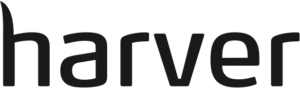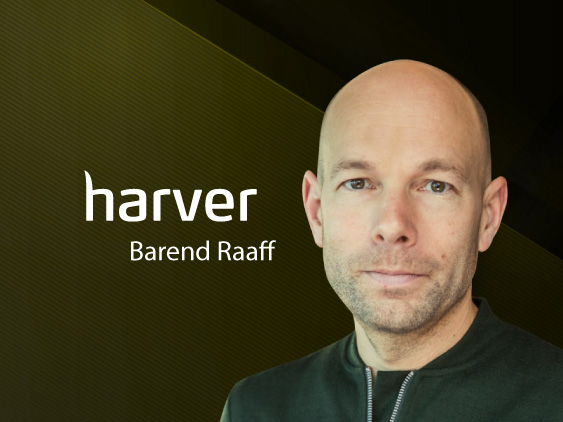Barend Raaff, CEO of Harver a pre-employment assessment platform that helps companies hire at scale joins us in this TecHRseries interview to talk about how HRTech is reshaping all aspects of human resource management while also sharing his predictions for the industry.
We’d love to know a little bit about your journey so far Barend and your TOP 5 (HR) takeaways, given all your years at Harver!
Back in 2013, I was working with Randstad and I started noticing how illogical the recruitment processes at companies were. People didn’t know what the jobs they were applying for entailed and they were getting hired or rejected based on arbitrary decisions. At the same time, other industries were already using technology to improve their workflows and decision-making and I realized recruitment could do with some innovation as well. And that’s how Harver started. Six years later, we’re helping companies from around the globe bring their candidate selection process into the 21st century and hire based on data.
One of the key learnings I’ve gained is that managing expectations makes all the difference. When candidates know from the beginning what the job they’re applying for is about, its good and bad sides, they are going to be more successful in the role and stay in it longer. Also, rejection doesn’t have to be a dead-end street. If you provide your applicants with great candidate experience, they are more likely to still love and engage with your brand even after rejection. In general, candidate experience is gaining a lot of importance. In the age when everything including (prospective) employers gets reviewed online, organizations can’t afford to neglect how their candidates feel about their hiring process.
Another takeaway is that recruitment is learning a lot from marketing. Recruiters increasingly understand that they need to attract, nurture and convert candidates in a way marketers do it with customers. Also, the adoption of other marketing techniques like programmatic advertising and content marketing is proving to be effective in talent acquisition.
And the most important learning is that your product or service is only as good as your employees are. That’s why treating your (future) employees as the most valuable resource is of utmost importance.
Read More: TecHR Interview with Karen Cygal, Senior Vice President at Worldwide ERC
According to you, how will the HR Tech space evolve in the coming years? What will the future of HR Tech look like?
If we look at HR tech, especially recruitment tech, there is more and more awareness about unconscious bias and companies put a lot of effort into tackling it. However, with all the new HR and recruitment technology emerging, it is hard to ensure the fairness of these tools. On one hand, I think HR tech providers will strive for eliminating adverse impact and constantly monitor and optimize their algorithms to guarantee bias-free performance. On the other hand, the legislation will likely start catching up with tech developments in recruitment. For example, the state of Idaho has recently passed the Artificial Intelligence Video Interview Act to regulate the use of AI analyses of videos submitted by job applicants and other states and countries will most probably follow.
Next to this, companies are increasingly realizing the importance of candidate experience and candidate engagement. That’s why they will invest more in ways to nurture their candidates, mainly through candidate relationship management and recruitment marketing tools. Hyper-personalization is the future of recruitment and I can see the growing importance of technology helping to deliver positive candidate experience.
HR and talent acquisition are becoming increasingly strategic in their function, advising businesses on how to maximize their workforce’s potential. HR tech such as recruitment software, talent analytics or employee feedback tools enables the HR department to focus on exactly that.
What are the top 5 tips you would give companies who are just integrating/setting up new HR Tech systems that allow them to assess company-wide employee performance and behavior?
First of all, demonstrate that you are committed to your employees. Not only do you use technology to improve the overall performance of your business, but you also want to make sure that your employees are empowered to give you their best. Second, be transparent. Make it clear what kind of technology you’re using, why and how it will help you achieve your goals. Your employees don’t want to feel spied on. So help them understand what you’re doing with the information you gather and how it will affect them. After you integrate a new system, you should monitor the results and see if it brought any improvements to your processes. However, it doesn’t stop with tracking metrics. Companies need to analyze the results and come up with ways to optimize the use of their new software. Ask yourself what you can do to make the most of it. From a practical point of view, if you want your employees to use a certain tool, make sure that it is ready for mobile use and that they can access it from multiple devices. You don’t want to put any extra obstacles between the employees and the software and make the transition to use it more difficult.
What according to you are some of the basic challenges today’s B2B / Tech Hiring teams (teams hiring for roles in Tech Marketing/Sales) face?
One of the biggest challenges that companies currently report is talent shortage. They are not able to find the right talent to fill their roles. Another frequently mentioned challenge is a lack of diversity in tech teams. At Harver, we overcome these challenges by being proactive in our recruitment efforts, anticipating hiring needs and sourcing talent both locally and internationally.
Could you talk about some innovative ways some of your customers have used Harver’s employee assessment software to drive better HR processes?
Most recently, we’ve helped two large retailers, Aldi in Europe and Valvoline in the US, build an engaging, mobile-first application process including a realistic job preview and situational judgment testing with Harver. It allows them to gather important information about candidates within minutes while also providing the candidates with a fun application experience. This resulted in time to hire being reduced by 42% on average. What’s more, candidates can simultaneously apply and be considered for multiple jobs at multiple locations in the same area. Our technology automates the distribution of the available talent pool over different locations and positions. This has increased the utilization of the talent pool by 25% on average. At the same time, it gives candidates more chances to get hired, improving the candidate experience and brand likeability as a result.
Read More: TecHR Interview with Casey Welch, Co-founder, President, and CEO of Tallo
What would your suggestion be when preparing the modern workforce for the “Future of Work”? What will the “Future of Work” look like, according to you?
There is a lot of discussion about automation replacing jobs, especially endangering low-skilled roles. What people often fail to realize is that automation and technology will create and change many jobs, too. However, employees will need to gain new skills and improve the skills that they already have to succeed in the future. So, in my opinion, the “future of work” means upskilling and reskilling the workforce to facilitate the technological developments affecting their work and to maximize efficiency and productivity through collaboration with technology. What organizations need to focus on is filling the talent gaps they’re experiencing through learning and development, which I think employers will emphasize in the near future.
If HR uses more and more technology, what would your tips be for them not to lose the human touch?
When you’re implementing any sort of HR technology (and any new technology in general, for that matter), you shouldn’t treat it as a magical solution to your problems or challenges. Technology isn’t supposed to do your work for you, instead, it should be a means to free your time to focus on what really matters instead of being inundated with repetitive, administrative tasks.
And what is it that really matters? Proactively building relationships with your candidates and employees, understanding their needs, negotiating the best possible conditions for both candidates and employees and the company, etc. HR and recruiting is about people, after all, so when implementing and using technology, you should never forget that.
What would you like to see more of in the HR Tech space? Or rather, what would you like to change in this segment?
HR and recruitment tech vendors should be transparent in providing information on how their technology, especially containing AI, works. For example, how are candidate assessments validated? How do the algorithms work? What data is collected? What criteria are used to rank candidates? Transparency should be the norm in the HR tech space, and not only from vendors to companies using the tech but also from the companies to their candidates.
Tag (or mention/write about) one person in the industry whose answers to these questions you would love to read!
That would be Jennifer Terry-Tharp from AT&T. I came across an infographic on indeed the other day about AT&T’s candidate experience. They shortened the application process to improve a number of recruitment KPIs and I would love to hear her thoughts on the future of technology in recruitment.
What’s your favorite HR/Hiring/Recruitment quote that you’d love to share here?
The author Jim Collins said, “Great vision without great people is irrelevant.” And that’s something I live by at Harver and also what we’re teaching our customers.
Read More: TecHR Interview with Ciara O’Keeffe, VP of Customer Experience at StaffConnect

Harver is a pre-employment assessment platform for hiring at scale. Hundreds of the most innovative companies, including Netflix, Uber, Booking.com, and Heineken use Harver to digitally transform their candidate selection process into an experience recruiters, hiring managers and candidates love. With offices in Amsterdam, NY, and London, Harver is disrupting the recruitment industry and providing companies with an intelligent way to evaluate and automate all aspects of candidate selection, while simultaneously fighting unconscious bias in the process.
Barend Raaff is a serial entrepreneur, digital innovator, and co-founder and CEO of Harver. Prior to Harver, Barend owned an online strategy consultancy focused on challenges in digital transformation of global enterprise organizations. With Harver, Barend is on a mission to turn the hiring process into an engaging and rewarding experience for everyone involved.

